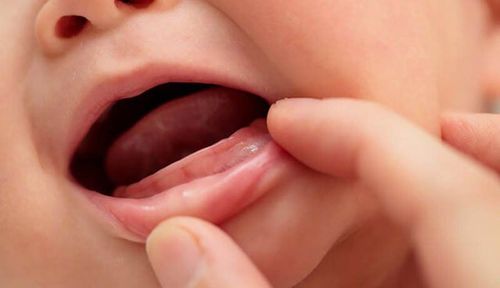This is an automatically translated article.
Nutrition examination for children is increasingly interested, especially in the first years of life. This is necessary to build a scientific diet suitable for each child. Therefore, parents need to know the process of nutritional examination for children to ensure the comprehensive development of both physical and intellectual.
1. The role of nutrition examination for children
The growth and development of young children change from day to day, along with their problems and nutritional needs. Especially in the first years of life, nutrition for children is one of the issues that need to be focused by parents to ensure the comprehensive development of their children.
Paying attention to children's nutritional needs is to optimize both physical and intellectual development. Therefore, the process of periodic nutritional examination for children is increasingly important with the following benefits:
Accurately assess the child's physical condition, nutritional status and growth rate for timely adjustment proper diet and exercise. Such timely intervention will prevent from the beginning the germs that cause health problems for children later. Early detection of common nutritional diseases in children such as malnutrition, low birth weight, stunting, overweight, obesity or lack of vitamins and minerals in order to promptly change and offer appropriate treatment regimens. to avoid consequences affecting the health of children in the future. Early detection of symptoms or diseases that may hinder development in order to minimize the impact on health, brain and avoid leaving sequelae. Parents are guided by nutritionists to provide children with a reasonable, scientific diet and exercise, suitable for the development at each time. Children will have stable health, without minor diseases or chronic diseases. In addition to bringing health benefits, nutrition examination for children also helps build a healthy, scientific lifestyle in eating and exercising until adulthood.
2. Time to check nutrition for baby
During the first 3 years of life, the baby's nutrition is a particularly important factor and should be paid great attention by parents. Because this is a necessary period for a child's brain to develop and perfect, laying the foundation for both physical and mental perfection later on. It is extremely necessary to visit a child's nutritionist periodically, because the nutritional needs of children are constantly changing, so it will be different for each age. Therefore, parents need to visit a doctor to examine their baby's nutrition and periodically to monitor and promptly adjust the child's diet and activities.
Parents should pay attention at times like 6, 9, 12, 15, 18, 24 months old to go to a nutritionist for their baby. Because after 6 months of age, babies start to eat solid foods, so there will be nutritional problems. Going to a nutritionist is to detect existing problems that may disrupt your baby's development. When the child is 24 months old or older, parents should re-examine their child's nutrition 1 to 2 times a year.
In addition, parents should take the child to a nutritionist as soon as possible if the child has one of the following symptoms:
Unusual signs of health appear such as anorexia, no weight gain, growth retardation, blue skin pale, lethargic or overweight, obese, refuses to exercise, ... The baby has digestive system problems such as when eating or has vomiting, constipation or unexplained diarrhea. Children with reduced immunity are often sick, runny nose, cough when changing weather, thinning hair, hair growth less or irregular, ... Children have symptoms of vitamin and mineral deficiency, especially calcium and vitamin D deficiency is common, causing children to function poorly, slow to roll over, crawl, sit, walk, stand, sleep or startle and not sleep deeply, teething delay, decay. tooth ,...

Việc đi khám dinh dưỡng cho trẻ em định kỳ là vô cùng cần thiết
3. Things to do when examining baby's nutrition
In order to ensure that the nutrition examination process for children is effective, so that appropriate care measures can be taken, parents need to understand the process of nutrition examination for children through the following important things: Know the signs and current problems of the child The most important thing is that parents need to know clearly what signs and nutritional problems their children are having? Do you have any health problems right now? To understand these conditions, the family should spend more time with the child, take care and actively learn about the causes leading to the current condition. Understanding the baby's current situation as well as the recent unusual manifestations in order to describe specifically and discuss in detail with the nutritionist to help the doctor have more diagnostic bases and provide solutions. timely decision.
Bring records when going to a nutritionist When going to a nutrition examination for a child, parents should bring all the records of the child's previous health examination so that the doctor can have an accurate diagnosis and give instructions. appropriate determination, saving time and costs for unnecessary tests.
Monitor and record the baby's diet and living habits Parents should monitor and record the children's meals within the last 1 month or 1 week, including: Food (food, food) to drink); the amount and number of times the child eats it; meal time... Besides, parents also need to remember the time to sleep at night, sleep in the middle of the day, and live and play during the day. All of this information is very important and very helpful in advising on appropriate nutrition, providing solutions to change and creating good eating habits for each child's individual condition.
Prepare questions about parents' questions about children's problems If you have planned to go to a nutrition clinic for your baby, parents should prepare questions about concerns, worries, and even concerns. present both personal insights and perspectives during the process of taking care of and raising children. Only then will the doctor know if the cause of the problem comes from the child or from the erroneous understanding of the parents. Ideally, parents should write down all the things they want to ask on a piece of paper to make sure nothing is left out.
Remember clearly the times when it is necessary to have a nutrition check-up for the baby and follow-up on the schedule. The nutritional needs of the child change continuously according to the month of age, so parents should give the child periodic nutritional examination to promptly adjust the regimen. child nutrition. Taking your child to a nutritional check-up on time will ensure that the child is provided with adequate nutrients for the development process.
Choose a reputable place to check your baby's nutrition. Nutritional issues, especially in children, are increasingly focused, so there are many medical facilities and hospitals that can be selected to take the baby to visit. Parents should choose hospitals or clinics that have their own nutrition specialists with leading nutrition experts to ensure the quality of examination.

Khi đi khám dinh dưỡng cho trẻ, mẹ nên chuẩn bị đầy đủ hồ sơ khám trước đó của trẻ
To have more knowledge about taking care of children according to age, please visit the website (vinmec.com) regularly and make an appointment with the leading doctors, Pediatricians - Nutrition experts when you need advice.













